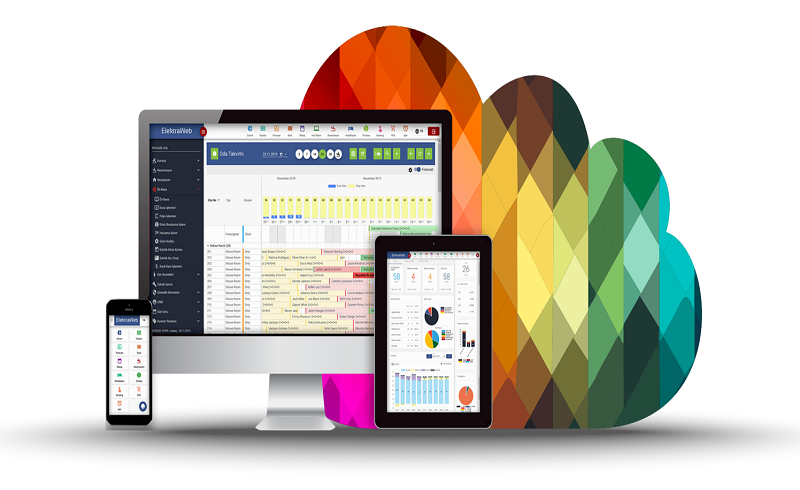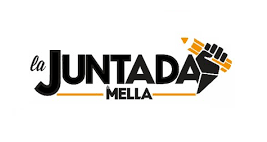
Managing a hotel effectively necessitates optimizing processes across multiple divisions. With rising expenses and competition, hotels must optimize resource use and improve client experiences. This article outlines several efficient hotel operations optimization strategies.
Streamline Check-in and Check-out Procedures
The check-in and check-out procedures set the tone for a guest’s stay and influence their overall pleasure. Hotel Management System should strive to streamline these processes to complete transactions more quickly. Using self-service kiosks allows clients to register independently. Integrating property management systems with online booking platforms guarantees that visitor information is pre-loaded, resulting in faster check-ins. Similarly, express check-outs, when bills are pre-paid online, might shorten wait times. Hotels should also cross-train employees to handle numerous responsibilities such as check-ins, concierge services, and so on to increase flexibility during busy hours.
Optimize Housekeeping Operations
Hotels incur significant costs in housekeeping. Implementing dynamic room cleaning schedules based on occupancy helps to optimize personnel deployment. Equipping cleaners with mobile devices for work management and digitally recording room status improves efficiency. Non-core activities, such as laundry and linen management, might be outsourced to specialist contractors to decrease expenses. Using eco-friendly cleaning chemicals and automating procedures with robotics reduces environmental impact and workload. Overall, simplifying housekeeping standard operating procedures is critical for more efficient resource utilization.
Centralize reservation, booking, and rate management
Managing reservations, bookings, and room rates manually across different channels is difficult and error-prone. Hotels should consolidate these functions into a single platform that includes integrations with websites, OTAs, property management systems, and so on. This allows rates and inventory to be linked in real-time, eliminating inconsistencies. It also makes it easier to manage promotions, packages, and special offers overall sales channels. Automated rate optimization allows you to dynamically establish optimal prices based on demand patterns, competition rates, and other considerations. This increases revenue creation.
Utilize technology for maintenance management
Maintaining equipment, facilities, and infrastructure in excellent working order is critical for providing continuous service. Traditional upkeep, on the other hand, is frequently ineffective and inaccessible. Computerized maintenance management systems provide for remote equipment monitoring, automatic work order production, parts inventory control, and performance tracking. Mobile apps also allow technicians to accept jobs, capture issues on-site, and update task status while on the go. This simplifies maintenance operations while increasing reliability. Advanced analytics on historical data can also assist predict equipment problems and arrange preventative maintenance ahead of time.
Optimize food and beverage operations
The food and beverage department is responsible for complicated supply chain and service delivery aspects. Menu engineering, recipe standardization, procurement, and inventory management should all be done on digital platforms. This provides transparency into expenses and waste. Partnering with specialized vendors for outsourced activities such as bakery and butchery might help you focus on your core capabilities. Guests may easily personalize their preferences with self-service kiosks and smartphone ordering apps. Tableside ordering with tablets simplifies the ordering process for servers. Analytics on sales and consumption patterns can aid in enhanced menu planning and demand forecasts.
Improve staff scheduling and productivity
Precise staff scheduling by business volumes is crucial for maintaining ideal headcounts without overstaffing. Cloud-based workforce management systems use automated algorithms to build ideal schedules by combining real-time and historical data. Productivity is enhanced by features like online time and attendance tracking, skills-based assignments, and mobile task/communication apps. Performance management solutions offer insights into individual/team efficiencies, allowing for more targeted training.
Improve supply chain management
An optimized supply chain is critical for smooth operations. Hotels should consolidate procurement by using group purchasing power to negotiate better vendor costs. Implementing vendor-managed inventory decreases holding costs by delegating stock replenishment to suppliers. Implementing technologies such as RFID and automated guided vehicles simplifies material movement within properties. Partnering with logistics providers for centralized receiving, storage, and just-in-time delivery to outlets reduces the need for warehouses. Streamlining supply chain procedures improves cost control and inventory management.
Optimize energy and water usage
Higher utility costs have a substantial influence on operating budgets. Hotels must implement energy and water conservation programs by renovating infrastructure with efficient systems, placing sub-meters to track use, and teaching employees sustainable practices. Switching to renewable energy sources, such as on-site generating or power purchase agreements, can further enhance savings. Monitoring and targeting reductions using building management systems also aids environmental stewardship.
Improve the Guest Experience with Digitization
Using digital solutions improves the guest journey. Guests can bypass front desks by using mobile check-in/out. Tablets in each room allow you to manage the lighting, curtains, and entertainment. Smartphones have digital keys that enable access to doors. Mobile apps make it easier to provide location-based services, push notifications, and make contactless payments. Self-service kiosks allow you to order food and get concierge help. Overall, simplifying operations with technology increases guest comfort and happiness.
Improving Communication and Collaboration.
To efficiently streamline hotel operations, departments must communicate regularly. Department heads must hold quarterly review meetings to assess interdepartmental workflows, resolve concerns, and identify areas for improvement. Implementing collaborative digital technologies, like intranets and job management systems, provides for real-time task updates and visibility. This encourages coordination. Cross-training programs assist employees in comprehending different responsibilities, which allows for more flexible resource deployment. High-performing teams and individuals are recognized through incentives and recognition programs, which enhances morale and motivation.
Adopting innovation and emerging technologies
Using cutting-edge technologies is critical to future-proofing operations. Artificial intelligence, machine learning, robots, IoT technologies, and augmented/virtual reality applications are all evaluated through pilot testing to determine their viability. Following a cost-benefit analysis, successful pilots can be scaled enterprise-wide. Partnering with companies that offer disruptive solutions keeps the hotel on the cutting edge of trends. Creating an environment in which employees can suggest new ideas and are encouraged to experiment promotes continual innovation. Overall, responding to technological advances promotes long-term competitiveness and growth prospects.
Conclusion
Hotels must reengineer procedures, optimize resource use, leverage technology, and efficiently interact across divisions to streamline operations. While initial investments may be required, the long-term benefits include significant cost savings, increased income through improved service quality, and guest pleasure. Most significantly, reducing processes allows hotels to concentrate on improving the guest experience. How to manage hotel their operations with the correct tactics. Hotels can achieve simplified operations over time by regularly evaluating processes, discovering inefficiencies, and making improvements. This enables them to provide consistent, high-quality service while maintaining a competitive advantage.
